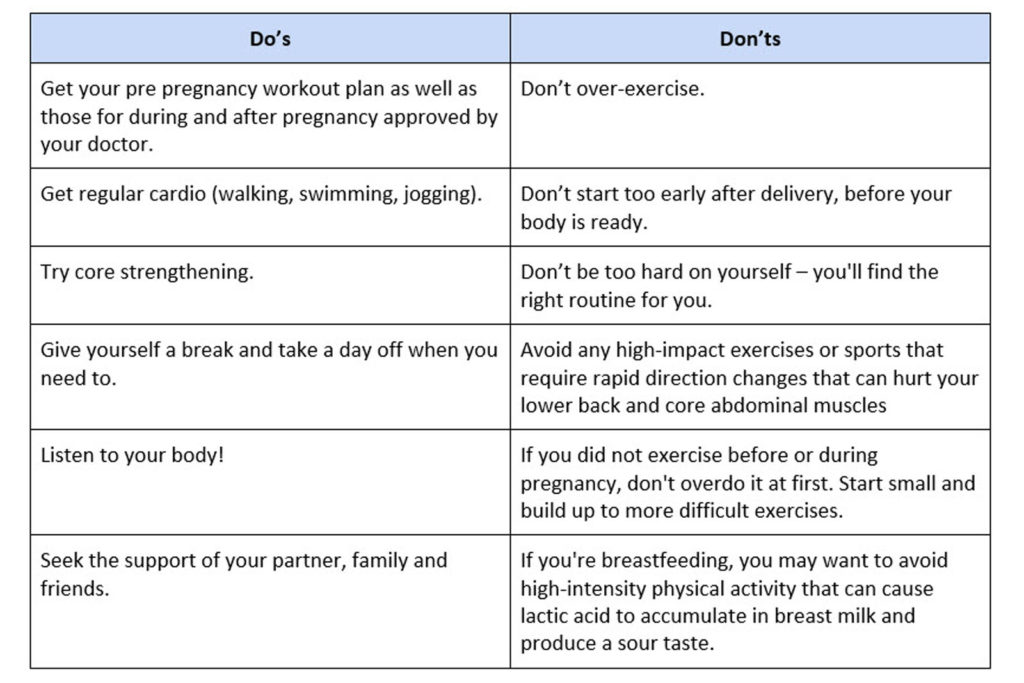Are you wondering if there’s a pre pregnancy workout plan you can follow to help you conceive? While there isn’t one specific exercise or series of exercises that will increase your fertility, introducing a healthy lifestyle can help increase your chances of success.
Maintaining a healthy body weight is not only important for overall health, it has a positive effect on both women and men’s fertility health. One way to measure whether you’re in a healthy weight range is using the Body Mass Index or BMI. You can easily calculate your BMI using your height and weight with the formula BMI = kg/m2. In this equation, kg is your weight in kilograms and m2 is your height in meters squared.

If women or men are overweight or underweight, it can take longer to conceive. Overweight and underweight women are at an increased risk of ovulation disorders. Men who are overweight or obese have decreased sperm quality and fertility potential over men who are of a healthy weight. Furthermore, being a healthy weight increases the chances of getting pregnant and reduces the risk of complications during pregnancy. Women who are obese take longer to get pregnant and have a higher risk of miscarriage, hypertension, pre-eclampsia, gestational diabetes, blood clotting, caesarean birth, and other complications.
If you or your partner are overweight or obese, losing even a few pounds can improve your chances of getting pregnant. Losing weight can be tough, but research shows that if partners get healthier together, they are more likely to be successful in their weight loss goals. So, what can you do to help your weight become “healthy”? Exercise moderately. Overly excessive exercise has been associated with decreased ovulation in women.
Benefits of Being Active
Pre-Pregnancy
Take advantage of the protective role physical activity plays for women and their babies and cut your risk of pre-eclampsia and gestational diabetes by incorporating the recommended levels of exercise into your lifestyle. A pre pregnancy workout plan with moderate-intensity exercise for 2.5 hours weekly can help lower the risk of gestational diabetes by more than 20%.
During Pregnancy
Just like a pre pregnancy workout plan can improve your heath, the main idea behind exercising while pregnant is to improve or maintain physical fitness and overall health and wellness. Exercising for 30 minutes on most, or all, days can benefit your health during pregnancy. Exercising for just 20 minutes, 3-4 days a week, is still beneficial as well. There are, however, a few things to keep in mind:
- If you were physically active before you were pregnant, it is likely safe to remain active during pregnancy.
- If you are pregnant and want to start an exercise routine contact your OB/GYN to discuss what is safe for you.
- Never push yourself too hard. Stay comfortable.
- Check with your doctor and make sure there are no other health conditions suggesting exercise may be unsafe.
- Don’t exercise for weight loss. Exercise for your overall health and wellness. The important thing is to be active and get your blood flowing.
Exercising while pregnant can help to alleviate common discomforts women experience during pregnancy and can help you prepare for labor and delivery. Exercising while pregnant can help in the following ways:
- Reduce backaches
- Alleviate constipation, bloating, and swelling
- Help prevent, or treat, gestational diabetes
- Increase energy levels
- Improve your mood
- Improve your posture
- Help you get to sleep and stay asleep
- Improve your ability to cope with labor
- Make it easier to get back in shape after birth
Post-Pregnancy
Regular exercise is great for you and offers you numerous health benefits, including assistance with weight loss, increased aerobic fitness, social interaction and psychological well-being. Exercise after giving birth can also hasten recovery and assist with muscle strength and toning. What’s more? It can help to improve your mood, raise your energy level, relieve stress, and help prevent postpartum depression.
First thing’s first! Always consult with your doctor before starting any postnatal exercise program. You may be advised to wait until your six-week postnatal check-up, or, if you were active before and throughout your pregnancy, you may be able to get started sooner. Just make sure to check in with your doctor first! Here are a few things to consider:
- Gentle exercise like walking can generally be started as soon as it is comfortable after giving birth.
- Six weeks after giving birth, most of the changes that occur during pregnancy will have returned to normal.
- If you had a caesarean birth, a difficult birth, or complications, it may take a little longer to feel ready to start exercising.
- Your lower back and core abdominal muscles are weaker than they used to be after giving birth and it can be easier to injure yourself.
- It may be difficult to jump into a fitness routine when you’re caring for a newborn. Some days you may be too tired, and that’s ok.
Fitness Do’s and Don’ts

Help If You Need It – Kindbody Cares About Making Your Dreams of Parenthood Come True
Infertility is a disease of the reproductive system that affects the body’s ability to reproduce. If you are unsure or think something might be wrong, come in for simple fertility testing to get a “pulse” or baseline of your fertility health. After all, knowledge is power!
At Kindbody, our team approach is to educate and bring awareness to your fertility health while helping you navigate the journey and make your dreams of parenthood a reality.
Contact us today to schedule an appointment, discuss your options, and take control of your fertility health.